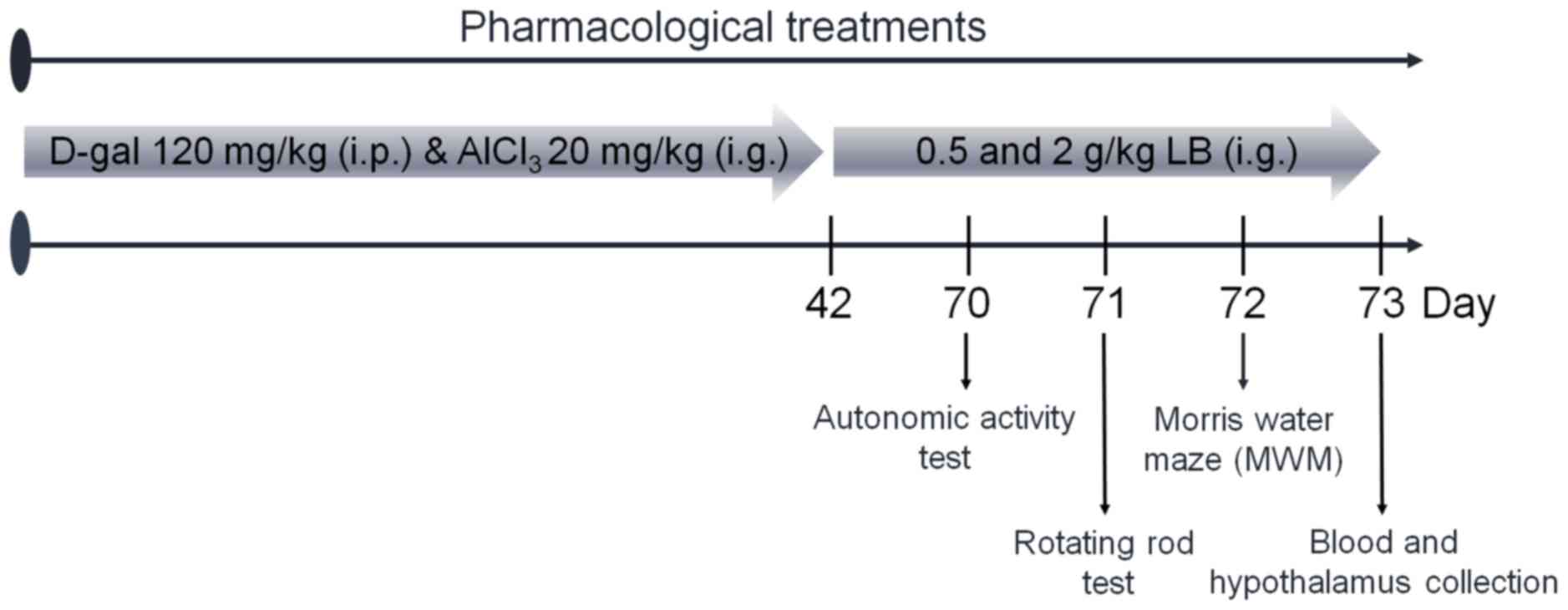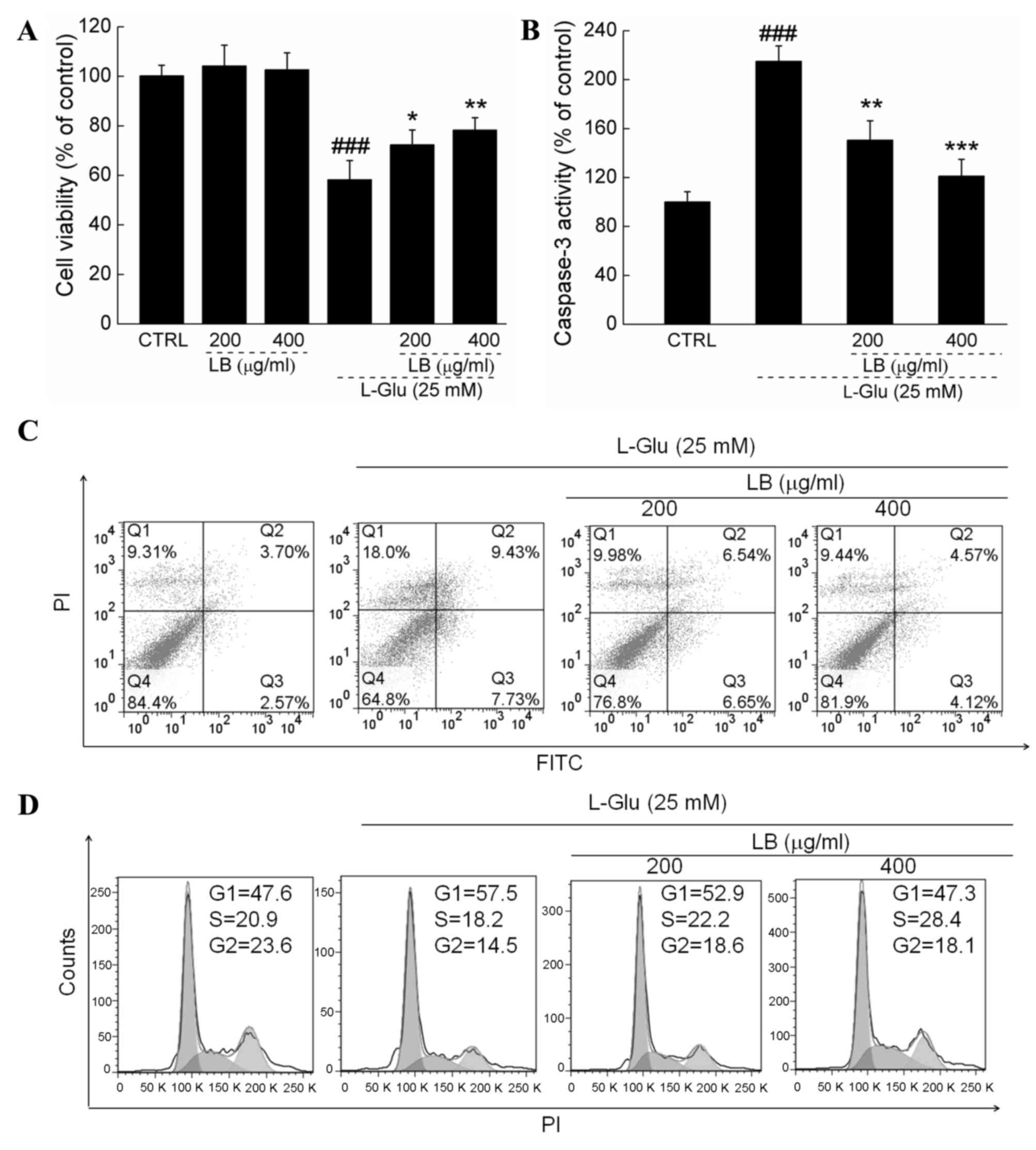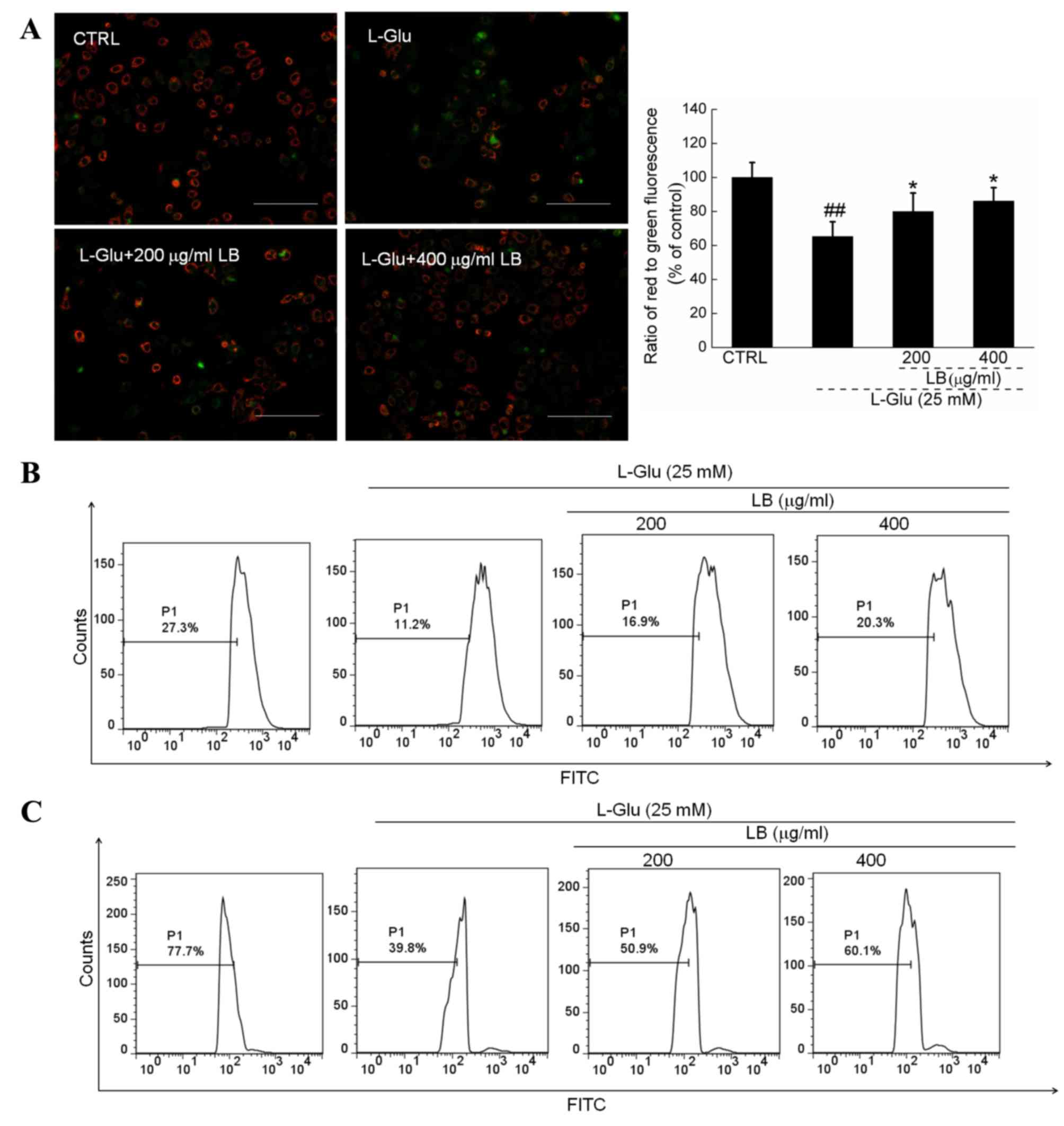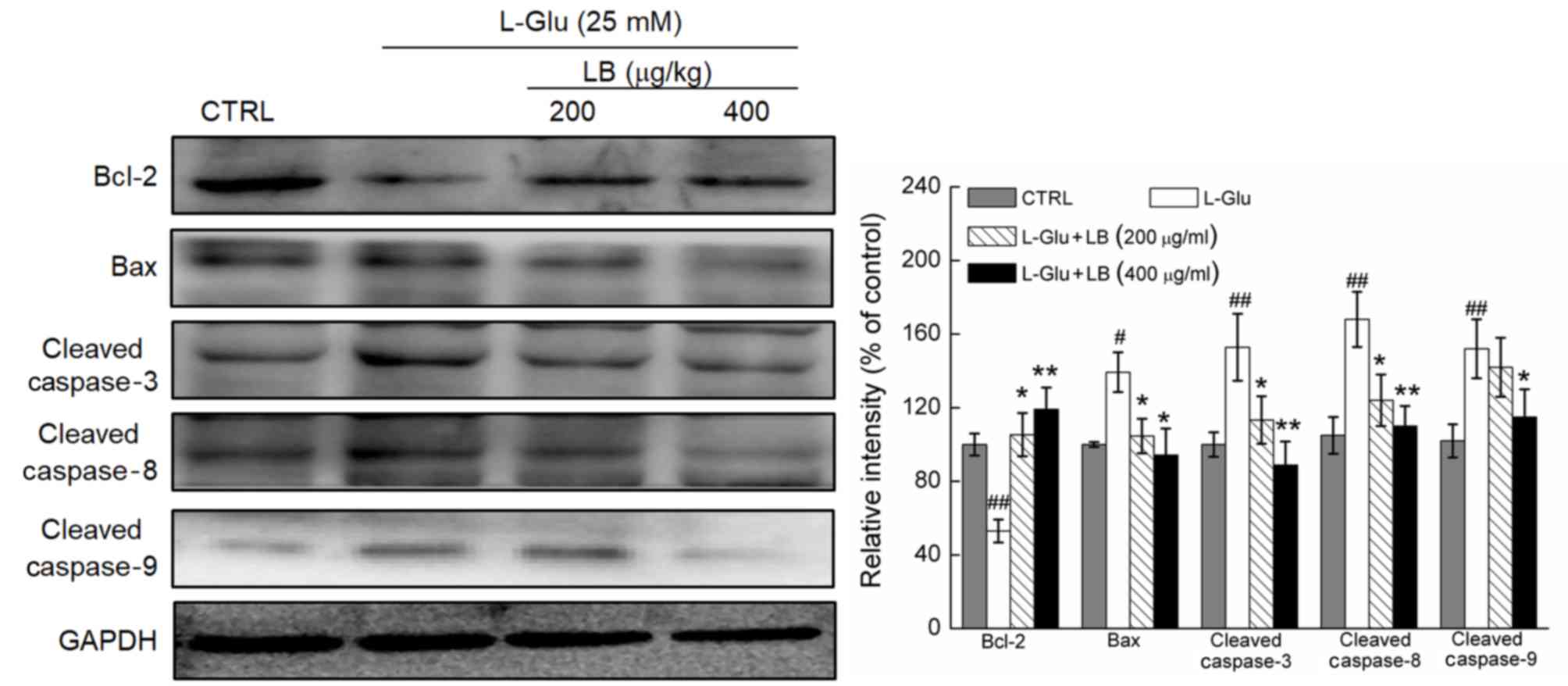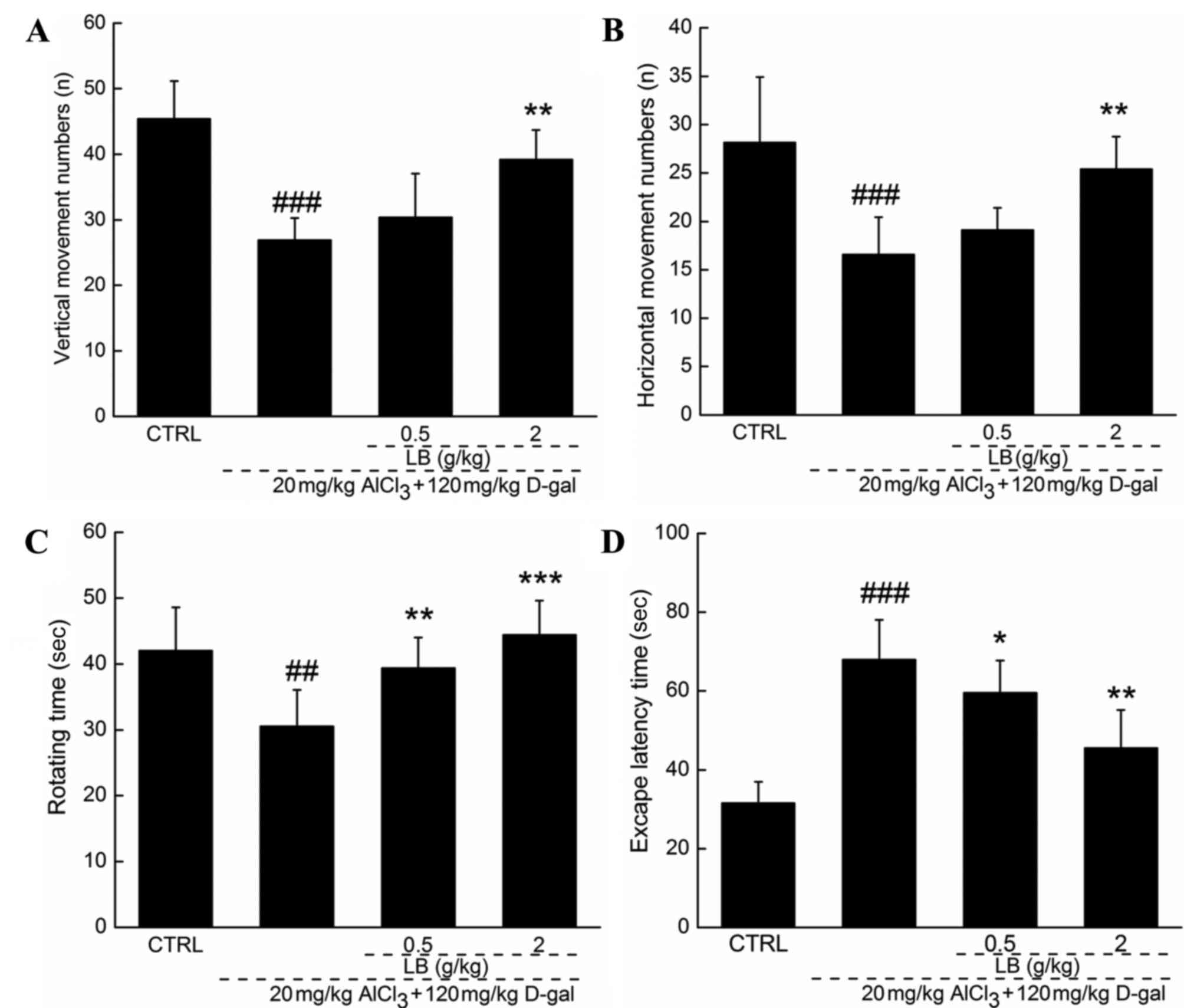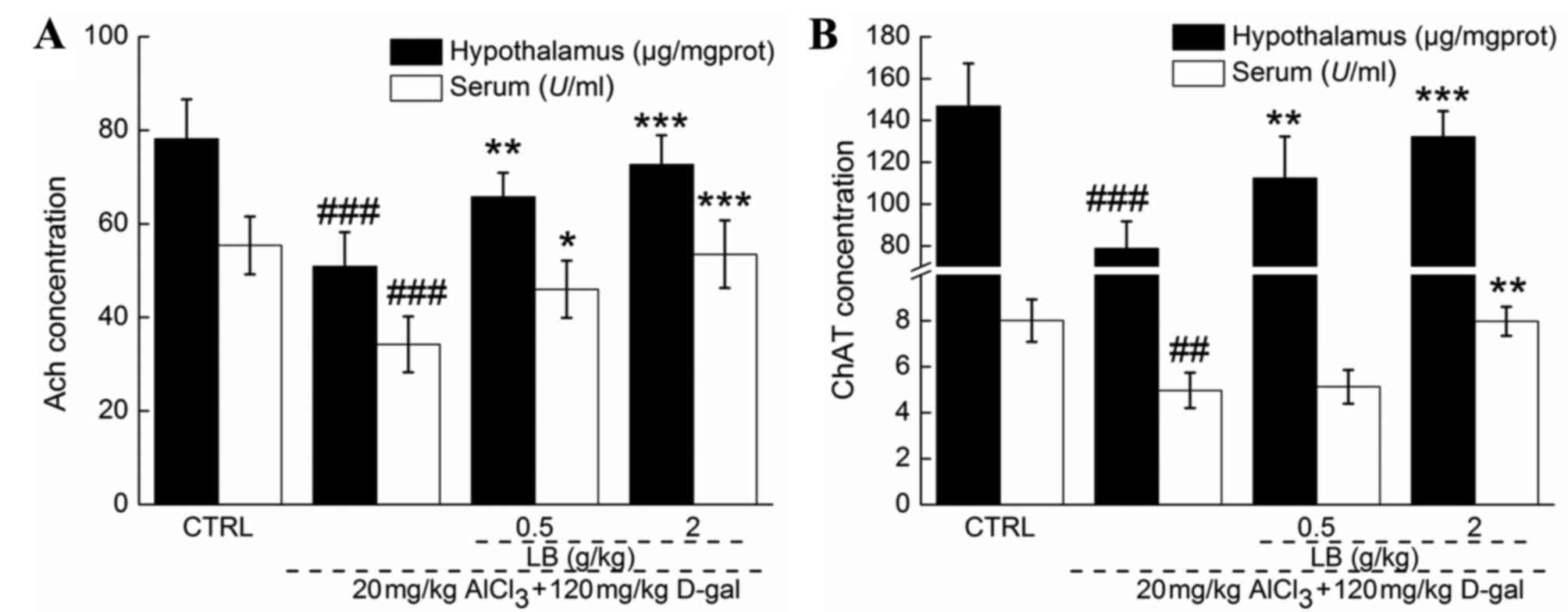|
1
|
Chang CH, Chen Y, Yew XX, Chen HX, Kim JX,
Chang CC, Peng CC and Peng RY: Improvement of erinacine A
productivity in Hericium erinaceus mycelia and its neuroprotective
bioactivity against the glutamate-insulted apoptosis. LWT Food Sci
Technol. 65:1100–1108. 2016. View Article : Google Scholar
|
|
2
|
Bermejo-Pareja F, Llamas Velasco S and
Villarejo-Galende A: Alzheimer's disease prevention: A way forward.
Revista Clínica Española (English Edition). 216:495–503. 2016.
View Article : Google Scholar
|
|
3
|
Rosello A, Warnes G and Meier UC: Cell
death pathways and autophagy in the central nervous system and its
involvement in neurodegeneration, immunity and central nervous
system infection: To die or not to die-that is the question. Clin
Exp Immunol. 168:52–57. 2012. View Article : Google Scholar : PubMed/NCBI
|
|
4
|
Karbowski M and Neutzner A:
Neurodegeneration as a consequence of failed mitochondrial
maintenance. Acta Neuropathol. 123:157–171. 2012. View Article : Google Scholar : PubMed/NCBI
|
|
5
|
Murphy E and Steenbergen C: Mechanisms
underlying acute protection from cardiac ischemia-reperfusion
injury. Physiol Rev. 88:581–609. 2008. View Article : Google Scholar : PubMed/NCBI
|
|
6
|
Luo Y, Niu F, Sun Z, Cao W, Zhang X, Guan
D, Lv Z, Zhang B and Xu Y: Altered expression of A beta
metabolism-associated molecules from D-galactose/AlCl(3) induced
mouse brain. Mech Ageing Dev. 130:248–252. 2009. View Article : Google Scholar : PubMed/NCBI
|
|
7
|
Li SP, Yang FQ and Tsim KW: Quality
control of Cordyceps sinensis, a valued traditional Chinese
medicine. J Pharm Biomed Anal. 41:1571–1584. 2006. View Article : Google Scholar : PubMed/NCBI
|
|
8
|
Hu S, Wang D, Zhang J, Du M, Cheng Y, Liu
Y, Zhang N, Wang D and Wu Y: Mitochondria related pathway is
essential for polysaccharides purified from sparassis crispa
mediated neuro-protection against glutamate-induced toxicity in
differentiated PC12 cells. Int J Mol Sci. 17:pii: E1332016.
View Article : Google Scholar
|
|
9
|
Zhang J, An S, Hu W, Teng M, Wang X, Qu Y,
Liu Y, Yuan Y and Wang D: The Neuroprotective properties of
Hericium erinaceus in glutamate-damaged differentiated PC12 cells
and an Alzheimer's disease mouse model. Int J Mol Sci. 17:pii:
E18102016. View Article : Google Scholar
|
|
10
|
Zareisedehizadeh S, Tan CH and Koh HL: A
review of botanical characteristics, traditional usage, chemical
components, pharmacological activities and safety of pereskia bleo
(Kunth) DC. Evid Based Complement Alternat Med. 2014:3261072014.
View Article : Google Scholar : PubMed/NCBI
|
|
11
|
Gao K, Liu M, Cao J, Yao M, Lu Y, Li J,
Zhu X, Yang Z and Wen A: Protective effects of Lycium barbarum
polysaccharide on 6-OHDA-induced apoptosis in PC12 cells through
the ROS-NO pathway. Molecules. 20:293–308. 2015. View Article : Google Scholar
|
|
12
|
Mi XS, Feng Q, Lo AC, Chang RC, Lin B,
Chung SK and So KF: Protection of retinal ganglion cells and
retinal vasculature by Lycium barbarum polysaccharides in a mouse
model of acute ocular hypertension. PLoS One. 7:e454692012.
View Article : Google Scholar : PubMed/NCBI
|
|
13
|
Zhang N, Li Q, Wang J and Teng L:
Screening of Irpex lacteus mutant strains and optimizing
fermentation conditions. J Food Agric Environ. 12:1213–1219.
2014.
|
|
14
|
Wang H, Pampati N, McCormick WM and
Bhattacharyya L: Protein nitrogen determination by kjeldahl
digestion and ion chromatography. J Pharm Sci. 105:1851–1857. 2016.
View Article : Google Scholar : PubMed/NCBI
|
|
15
|
Su WT and Shih YA: Nanofiber containing
carbon nanotubes enhanced PC12 cell proliferation and
neuritogenesis by electrical stimulation. Biomed Mater Eng. 26
Suppl 1:S189–S195. 2015.PubMed/NCBI
|
|
16
|
Shimmyo Y, Kihara T, Akaike A, Niidome T
and Sugimoto H: Three distinct neuroprotective functions of
myricetin against glutamate-induced neuronal cell death:
Involvement of direct inhibition of caspase-3. J Neurosci Res.
86:1836–1845. 2008. View Article : Google Scholar : PubMed/NCBI
|
|
17
|
Cheriyan J, Balsara RD, Hansen KB and
Castellino FJ: Pharmacology of triheteromeric N-Methyl-d-Aspartate
receptors. Neurosci Lett. 617:240–246. 2016. View Article : Google Scholar : PubMed/NCBI
|
|
18
|
Feissner RF, Skalska J, Gaum WE and Sheu
SS: Crosstalk signaling between mitochondrial Ca2+ and ROS. Front
Biosci (Landmark Ed). 14:1197–1218. 2009. View Article : Google Scholar : PubMed/NCBI
|
|
19
|
Bernardi P and Rasola A: Calcium and cell
death: The mitochondrial connection. Subcell Biochem. 45:481–506.
2007. View Article : Google Scholar : PubMed/NCBI
|
|
20
|
Thatte U, Bagadey S and Dahanukar S:
Modulation of programmed cell death by medicinal plants. Cell Mol
Biol (Noisy-le-grand). 46:199–214. 2000.PubMed/NCBI
|
|
21
|
Christophe M and Nicolas S: Mitochondria:
A target for neuroprotective interventions in cerebral
ischemia-reperfusion. Curr Pharm Des. 12:739–757. 2006. View Article : Google Scholar : PubMed/NCBI
|
|
22
|
Tang XQ, Feng JQ, Chen J, Chen PX, Zhi JL,
Cui Y, Guo RX and Yu HM: Protection of oxidative preconditioning
against apoptosis induced by H2O2 in PC12 cells: Mechanisms via
MMP, ROS and Bcl-2. Brain Res. 1057:57–64. 2005. View Article : Google Scholar : PubMed/NCBI
|
|
23
|
Raisova M, Hossini AM, Eberle J, Riebeling
C, Wieder T, Sturm I, Daniel PT, Orfanos CE and Geilen CC: The
Bax/Bcl-2 ratio determines the susceptibility of human melanoma
cells to CD95/Fas-mediated apoptosis. J Invest Dermatol.
117:333–340. 2001. View Article : Google Scholar : PubMed/NCBI
|
|
24
|
Luo M, Lu Z, Sun H, Yuan K, Zhang Q, Meng
S, Wang F, Guo H, Ju X, Liu Y, et al: Nuclear entry of active
caspase-3 is facilitated by its p3-recognition-based specific
cleavage activity. Cell Res. 20:211–222. 2010. View Article : Google Scholar : PubMed/NCBI
|
|
25
|
Hippe D, Gais A, Gross U and Luder CG:
Modulation of caspase activation by Toxoplasma gondii. Methods Mol
Biol. 470:275–288. 2009. View Article : Google Scholar : PubMed/NCBI
|
|
26
|
Lee SY, Cherla RP, Caliskan I and Tesh VL:
Shiga toxin 1 induces apoptosis in the human myelogenous leukemia
cell line THP-1 by a caspase-8-dependent, tumor necrosis factor
receptor-independent mechanism. Infect Immun. 73:5115–5126. 2005.
View Article : Google Scholar : PubMed/NCBI
|
|
27
|
Yang D, Yaguchi T, Nakano T and Nishizaki
T: Adenosine-induced caspase-3 activation by tuning
Bcl-XL/DIABLO/IAP expression in HuH-7 human hepatoma cells. Cell
Biol Toxicol. 26:319–330. 2010. View Article : Google Scholar : PubMed/NCBI
|
|
28
|
Boucher D, Blais V, Drag M and Denault JB:
Molecular determinants involved in activation of caspase 7. Biosci
Rep. 31:283–294. 2011. View Article : Google Scholar : PubMed/NCBI
|
|
29
|
Espín R, Roca FJ, Candel S, Sepulcre MP,
González-Rosa JM, Alcaraz-Pérez F, Meseguer J, Cayuela ML, Mercader
N and Mulero V: TNF receptors regulate vascular homeostasis in
zebrafish through a caspase-8, caspase-2 and P53 apoptotic program
that bypasses caspase-3. Dis Model Mech. 6:383–396. 2013.
View Article : Google Scholar : PubMed/NCBI
|
|
30
|
Hall AM and Roberson ED: Mouse models of
Alzheimer's disease. Brain Res Bull. 88:3–12. 2012. View Article : Google Scholar : PubMed/NCBI
|
|
31
|
Salminen A, Haapasalo A, Kauppinen A,
Kaarniranta K, Soininen H and Hiltunen M: Impaired mitochondrial
energy metabolism in Alzheimer's disease: Impact on pathogenesis
via disturbed epigenetic regulation of chromatin landscape. Prog
Neurobiol. 131:1–20. 2015. View Article : Google Scholar : PubMed/NCBI
|
|
32
|
Wang Z, Wei X, Yang J, Suo J, Chen J, Liu
X and Zhao X: Chronic exposure to aluminum and risk of Alzheimer's
disease: A meta-analysis. Neurosci Lett. 610:200–2 06. 2016.
View Article : Google Scholar : PubMed/NCBI
|
|
33
|
Farkas E and Luiten PGM: Cerebral
microvascular pathology in aging and Alzheimer's disease. Prog
Neurobiol. 64:575–611. 2001. View Article : Google Scholar : PubMed/NCBI
|
|
34
|
Yang W, Yu J, Zhao L, Ma N, Fang Y, Pei F,
Mariga AM and Hu Q: Polysaccharides from Flammulina velutipes
improve scopolamine-induced impairment of learning and memory of
rats. J Funct Foods. 18:411–422. 2015. View Article : Google Scholar
|















